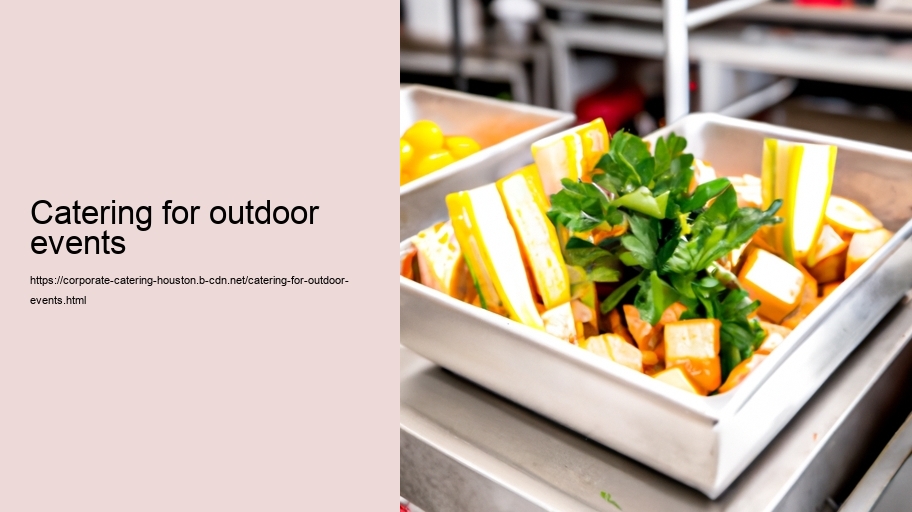Catering for outdoor events is a delightful and challenging venture that combines the art of food preparation with the logistics of serving in an open-air setting. Unlike indoor catering, which benefits from controlled environments and ready access to kitchen facilities, outdoor catering requires a unique set of skills and considerations to ensure success. This essay delves into the intricacies of catering for outdoor events, highlighting the importance of menu planning, equipment management, weather preparedness, staff coordination, and regulatory compliance.
At the core of any successful event is the menu—a reflection of the occasion's theme, the client's preferences, and guests' dietary needs. When it comes to outdoor events, menus must be crafted not only with taste in mind but also with a keen eye on practicality. Food items should be robust enough to withstand variable temperatures without compromising their flavor or presentation. For instance, dishes that can be served at room temperature—such as gourmet sandwiches, wraps, pasta salads, or charcuterie boards—are often ideal choices for picnics or casual gatherings.
In addition to selecting appropriate foods, chefs must consider how dishes will be transported to the event site and kept at safe temperatures until serving time. This challenge demands specialized equipment such as portable refrigerators for cold items or insulated carriers for hot dishes. Moreover, additional cooking appliances might be necessary if final preparations need to take place onsite; these could include portable grills for barbecues or gas burners for sautéing.
The unpredictability of weather represents another major factor when planning outdoor catering events. Contingency plans must account for rain showers that might necessitate tents or canopies providing cover for both guests and food stations. Similarly important is considering sun protection on hot days by ensuring shaded areas are available or by using cooling systems like fans or misters.
Staff coordination becomes even more critical outdoors where caterers have less control over their environment than they do indoors. Efficient communication channels among team members help tackle unforeseen challenges swiftly—be it a sudden gust of wind toppling over a serving table or an unexpected increase in guest count requiring rapid adjustments in food quantity.
Finally yet importantly is navigating local health regulations and permits required for outdoor food service—a task often underestimated by those new to this type fieldwork . Strict adherence to guidelines concerning food safety storage handling disposal not only ensures legal compliance but also upholds reputation reliability professional caterer .
In conclusion , successfully executing an event demands meticulous attention detail—from designing transportable yet delectable menus acquiring right tools combat elements coordinating diligently trained personnel adhering strictly local laws standards . Those who master these aspects will undoubtedly leave lasting impression clients revelers alike while savoring satisfaction well-executed celebration under sky .
